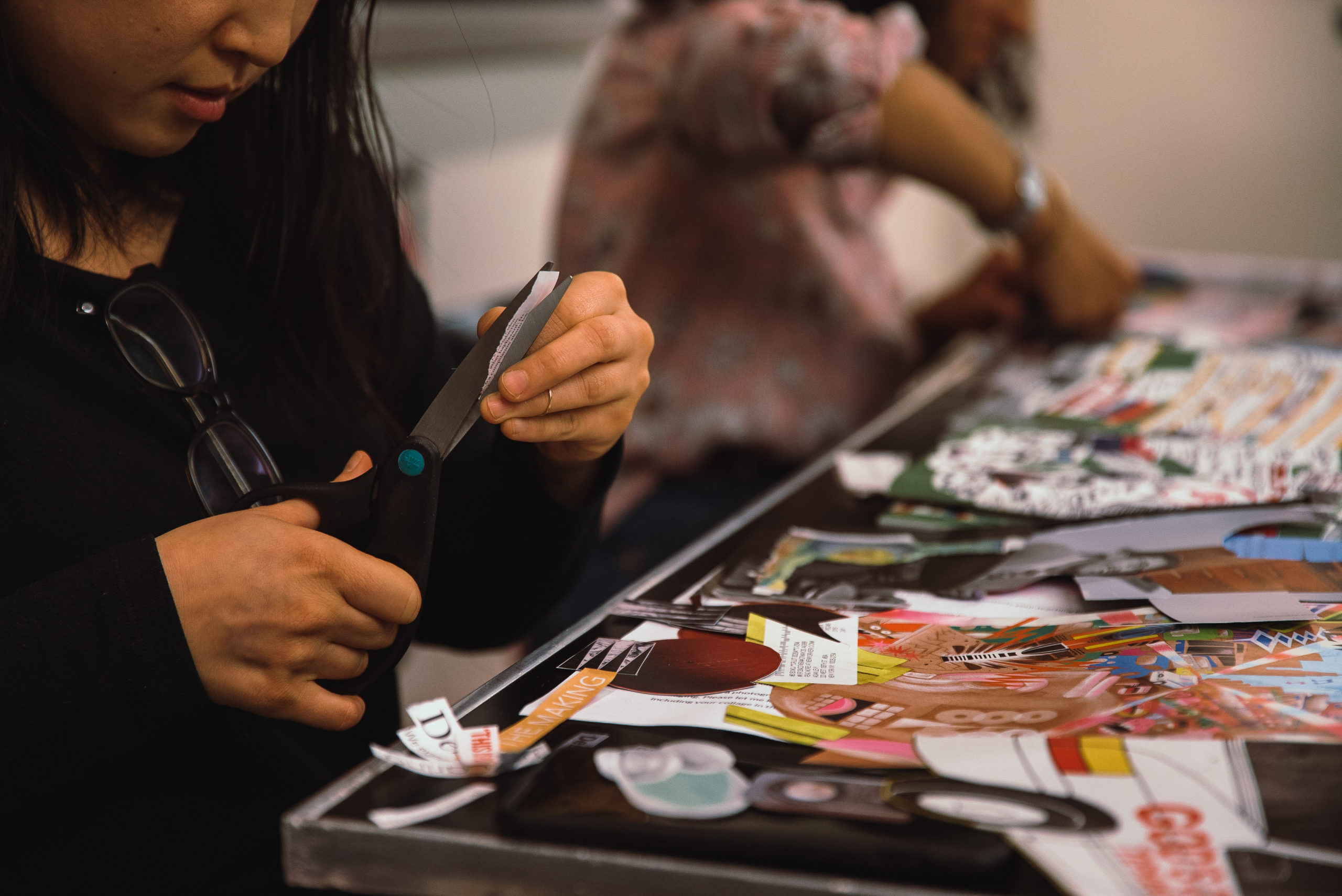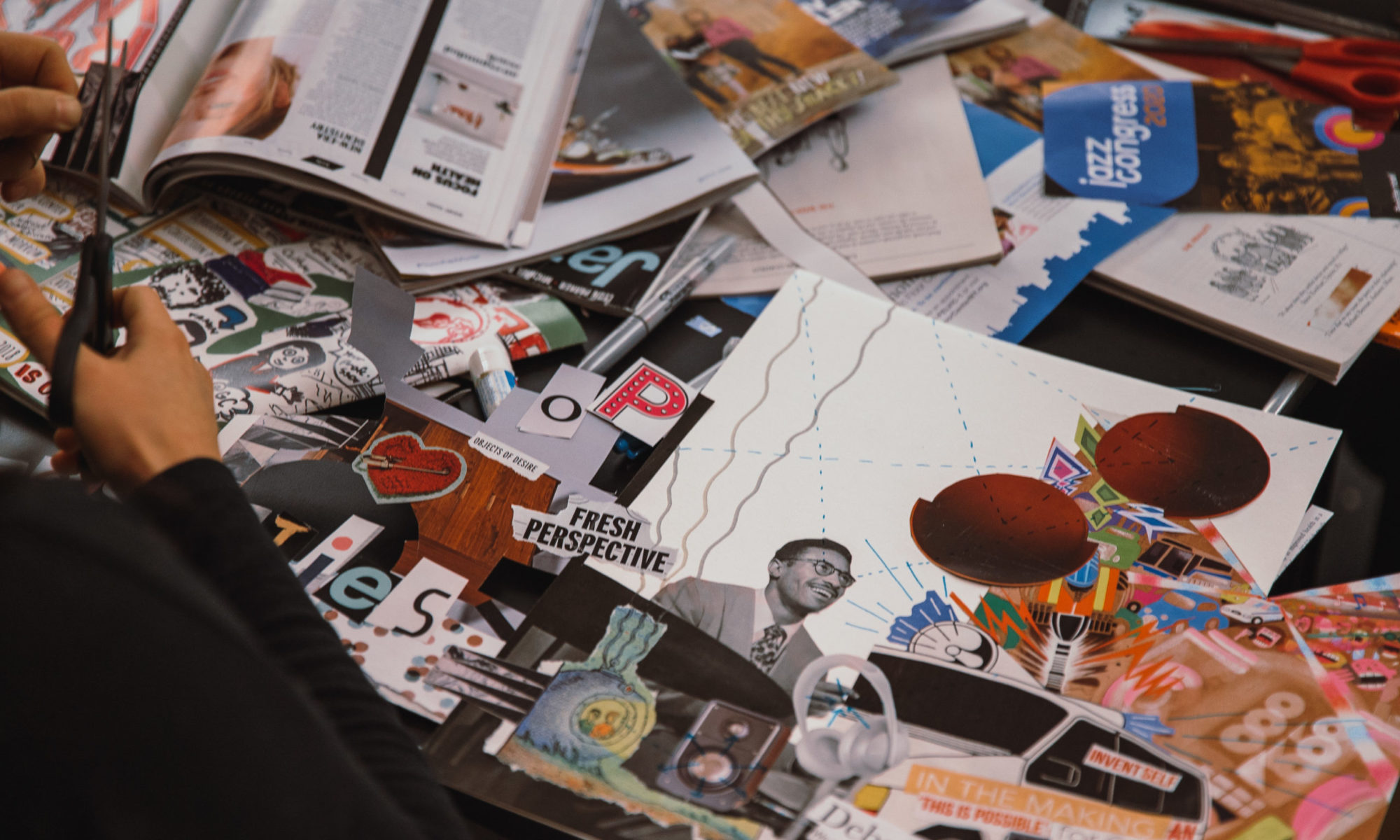
Where we come from, how we come to know the world, our experiences and points of view, and what matters to us shape our pedagogy. The knowledge we construct for and with our students is entrenched in our positionality in the world and in our disciplines. This workshop uses art-based methods to explore the process of knowledge production in our teaching, and the ways that is shaped by our identities and experiences. Read more about the workshop in this photo-essay.
Collaging facilitates the deconstruction and reconstruction of our perspective through a visual and inter-textual medium. This workshop aims to make meaning out of our positionality in the classroom and explore how pedagogy can be responsive to a range of oppressive and marginalizing social forces. Participants will be offered materials to play and explore, guiding questions to think with, and space to share experiences teaching in the socially conscious classroom.
Black Feminism and Decoloniality zine brings together a collection of excerpts from scholarly works, poems, and artworks that center the perspectives of black feminisms. The zine brings into conversation academic and artistic discourses to produce a multimedia, multifarious, mixed-genre and trans-disciplinary artifact that draws from the works of black scholars, poets and visual artists who confront colonial histories and legacies in their work. This zine was created as part of a final project for a class called Black Girl Literacies. It was later digitized using film.
Zine Methodology
The outcome of creating this zine was learning the methodology required to create a “text” that is aligned with scholarly and pedagogical goals. Focusing on the methodology of creating a zine is a productive place to consider how zines can be deployed as an academically useful and enriching learning tool and an alternative form of scholarship.
The first step to zine creation is selecting the content, and ensuring that each article chosen has a proper citation. For the Black Feminism and Decoloniality zine I selected a range of excerpts from the academic scholarship of Denise Ferreira Da Silva and April Baker-Bay, to poems by Koleka Putuma and Nayyirah Waheed, to the visual arts of Kerry James Marshall, Cecile Emeke and Mickalene Thomas, and many more. The pieces were selected based on their engagement with the issue of Afrocentrism, feminisms and decoloniality. I intentionally used my highlighted excerpts to introduce another layer of the reading by making visible where I paused.
Following selection and marking the individual articles with a citation, the works must be curated into a larger narrative or to answer an overarching question. This is similar to being guided by a research question or hypothesis, which will be answered through the artifacts selected and the weaving/facilitating of these discussion by the author of the zine.
These questions are a guide for curating the pieces into a cohesive narrative: How do these individual pieces speak to each other? What do they say? How do the images, poems and pros juxtapose or compliment one another? Finally, once the pieces are curated into a series of page spreads, consider where your own voice will mediate? How will you facilitate this conversation? Will you write an introduction? Will you use footnotes? Will you write around the pieces selected?
This method of creating a zine invites its author to utilize research and critical thinking (to select texts), craft a research question or hypothesis, utilize a system of citation, and draw connections and relationships between different pieces by using personal writing and visual curation.
Developing a Socially Conscious Pedagogy zine was a collaboration of CUNY Graduate Center educators. The workshop invited participants to contribute one assignment which they defined as socially conscious, and bring it to an art-making session in which we used collage to deconstruct and re-present the assignment as a means of reflecting on our pedagogies.






